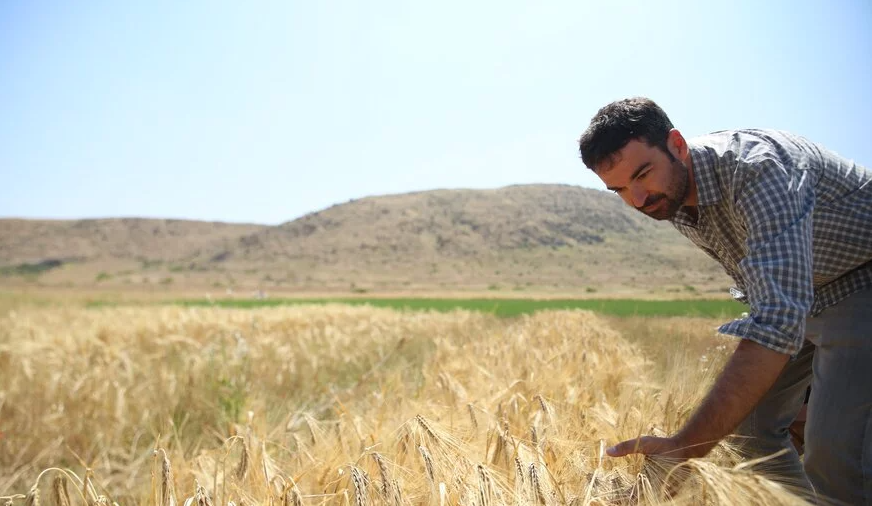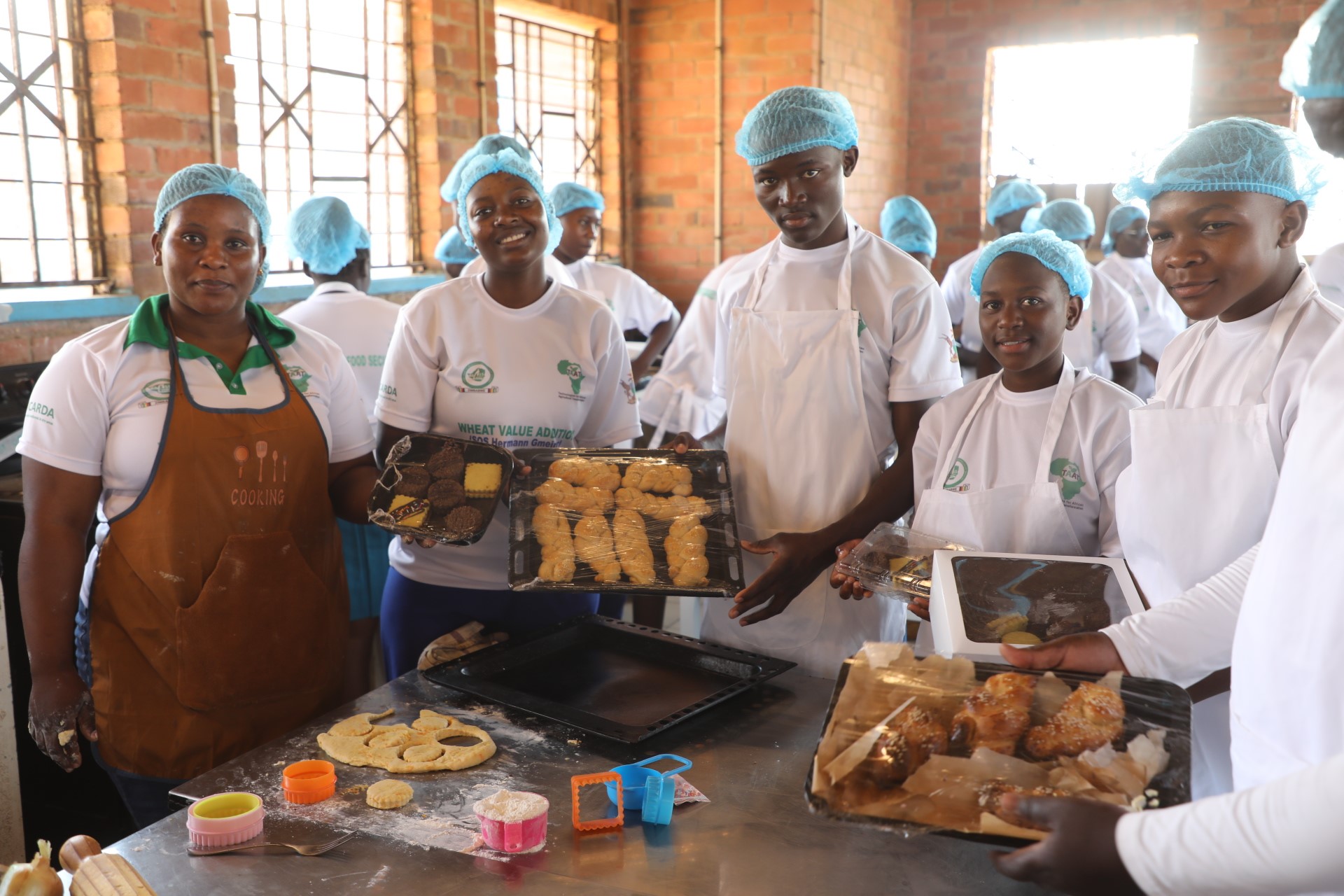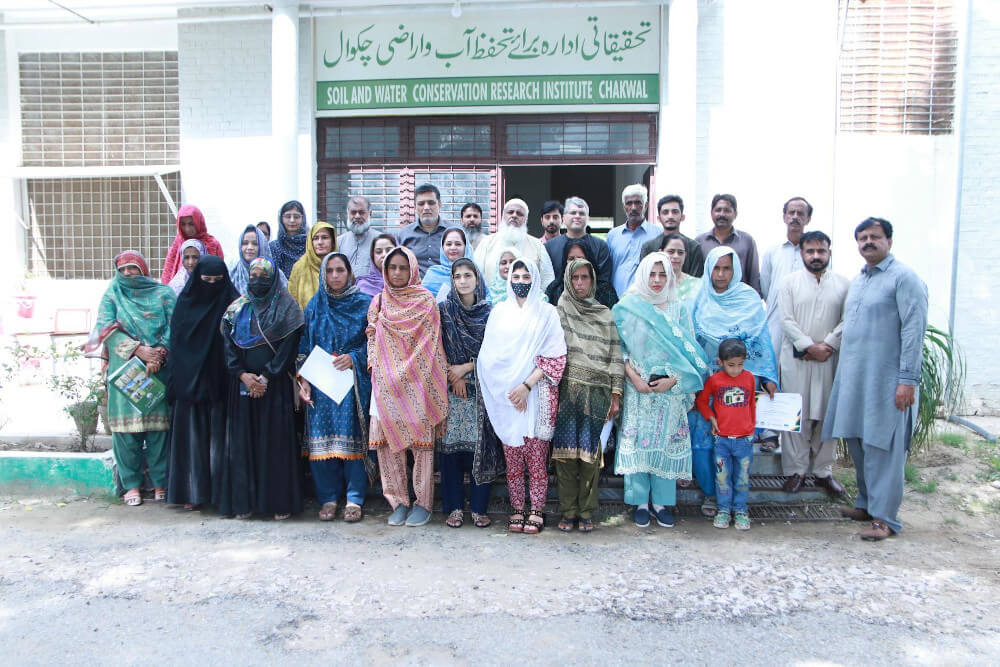A Decade of Research for Development in West Africa
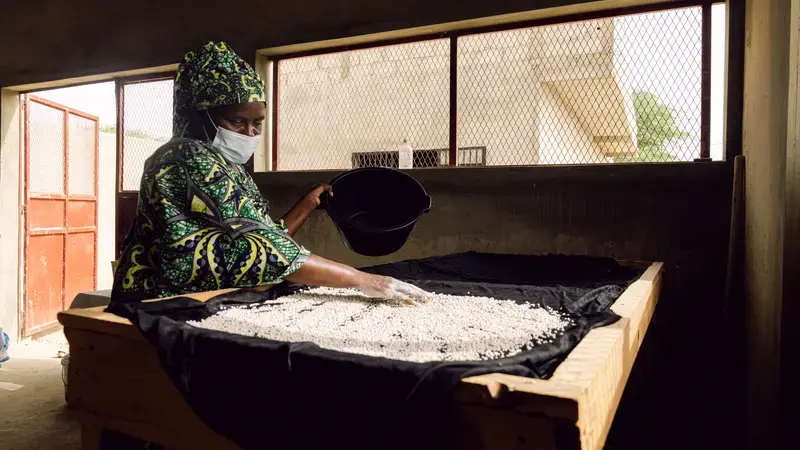
In 2014, a joint bold scientific experiment set out to test how wheat fared against West Africa’s relentless heat. Ten years later, the collaboration has delivered heat-tolerant varieties, empowered thousands of farmers, and transformed agriculture along the Senegal River, inspiring new policies, global recognition, and a wheat revolution across the region.
In 2013, the Swedish Research Council and the Swedish International Development Cooperation Agency (SIDA) launched the U-forsk program to advance agricultural adaptation to climate change. A team from the Swedish University of Agricultural Sciences (SLU) partnered with ICARDA, the Senegalese Institute for Agricultural Research (ISRA), and Mauritania’s National Center for Agricultural Research and Rural Development (CNRADA) on what many considered an unlikely proposition: cultivating durum wheat along the Senegal River, where crops are constantly stressed by intense heat.
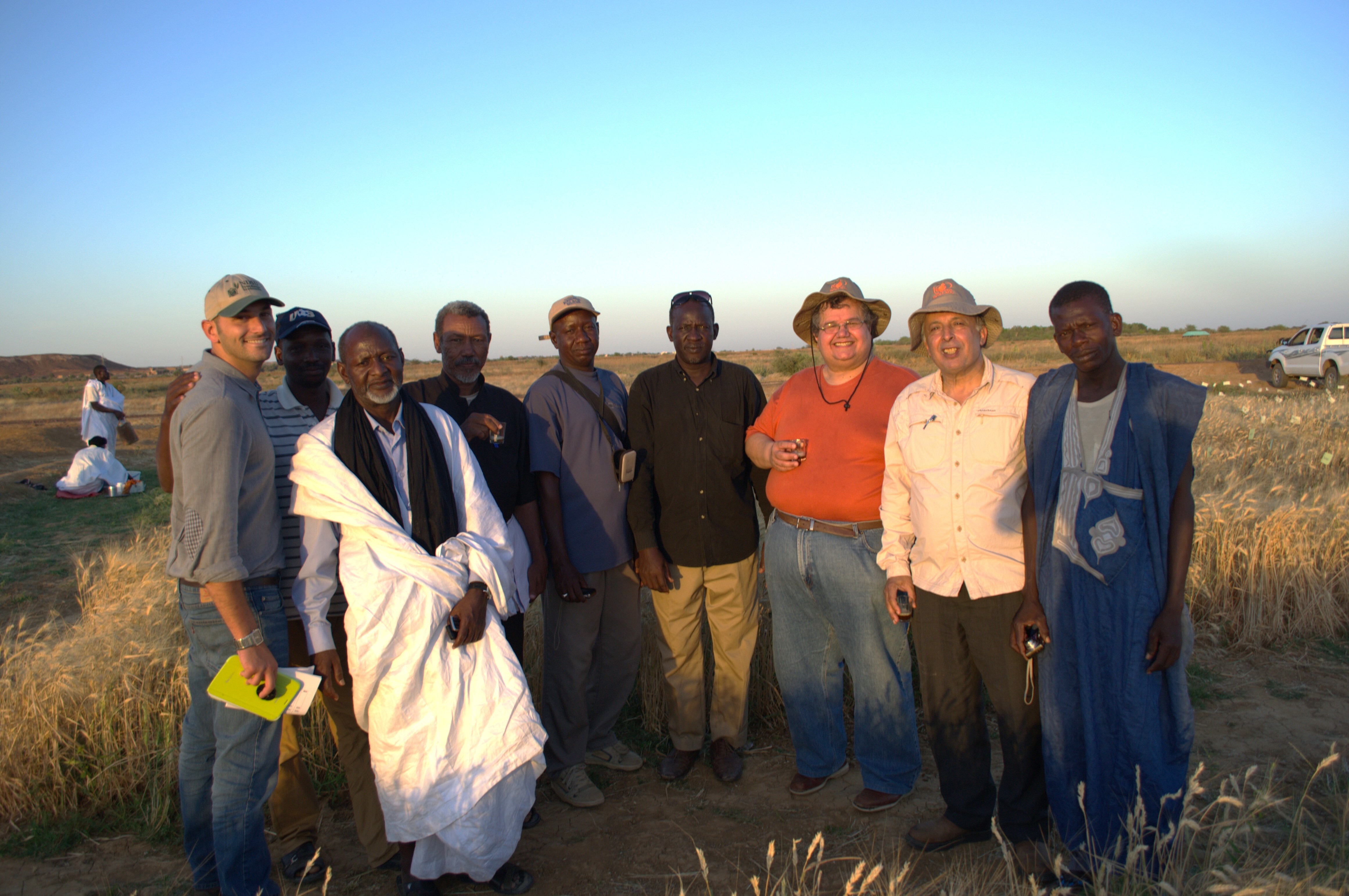
A decade later, that bold idea has reshaped agriculture in the region. Today, more than 30,000 farmers cultivate heat-tolerant durum varieties developed through this collaboration. The project has earned global recognition through the OLAM Prize for Innovation in Food Security, inspired national wheat expansion plans in Mauritania and Senegal, increased by 0.5% their agricultural GDPs, and spurred the release of a heat-tolerant durum variety in Nigeria.
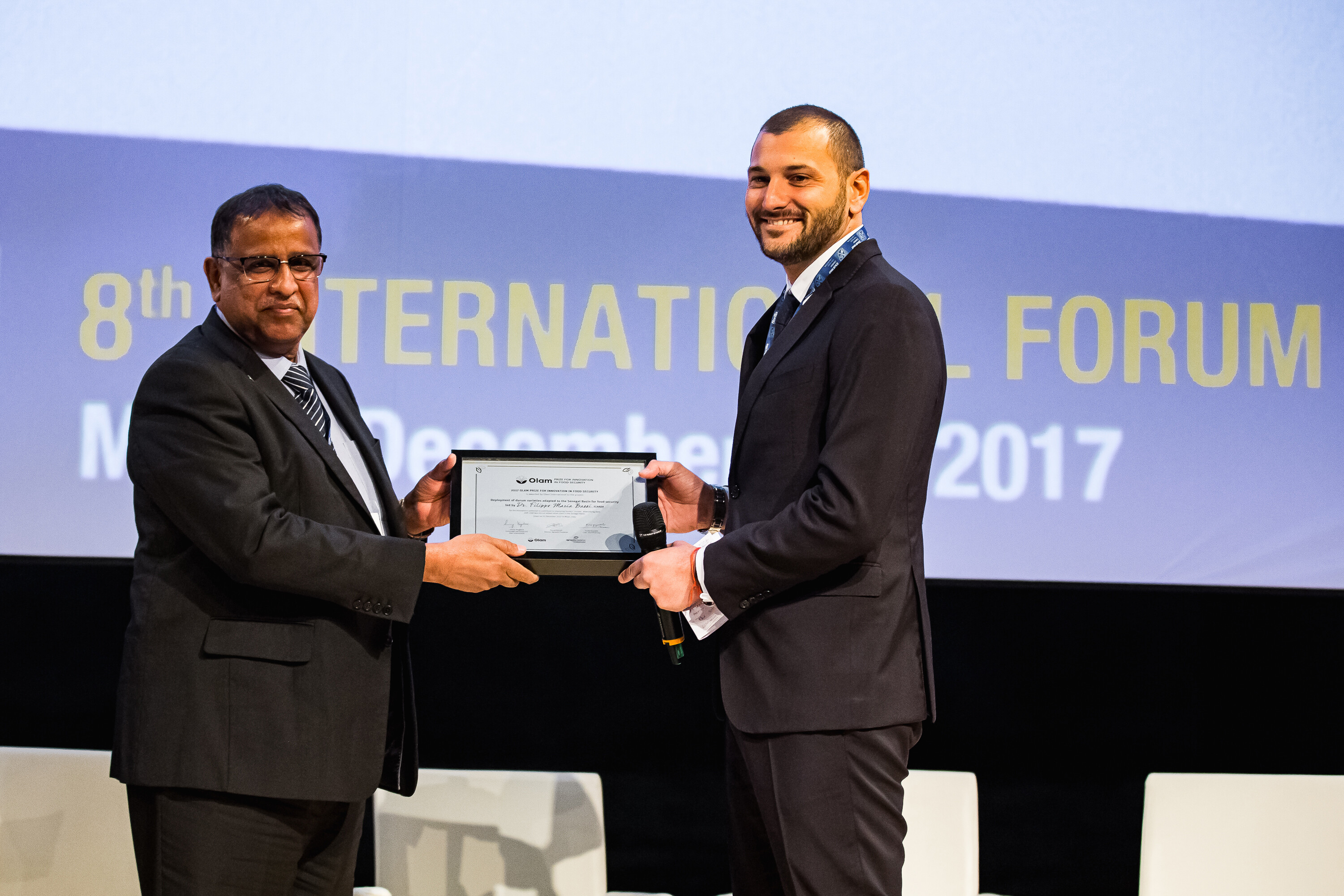
To celebrate 10 years of successful research for development, the project team and its development partners held an event in Uppsala, Sweden, as part of Agri4D to showcase how scientific research can truly promote social development.
“Achieving this impact was only possible thanks to the continuous support of U-forsk, which believed in us, granting three project phases,” said Filippo Bassi, Principal Scientist at ICARDA and project co-lead. “With a total investment of SEK 16 million (approx USD 2 million), we were able to generate over USD 75 million annually in new gross income, raising by 0.5% the national agriculture's GDP, and leaving a long-lasting impact in the region. We exceeded 30-fold return; proof of how research can truly drive development”.
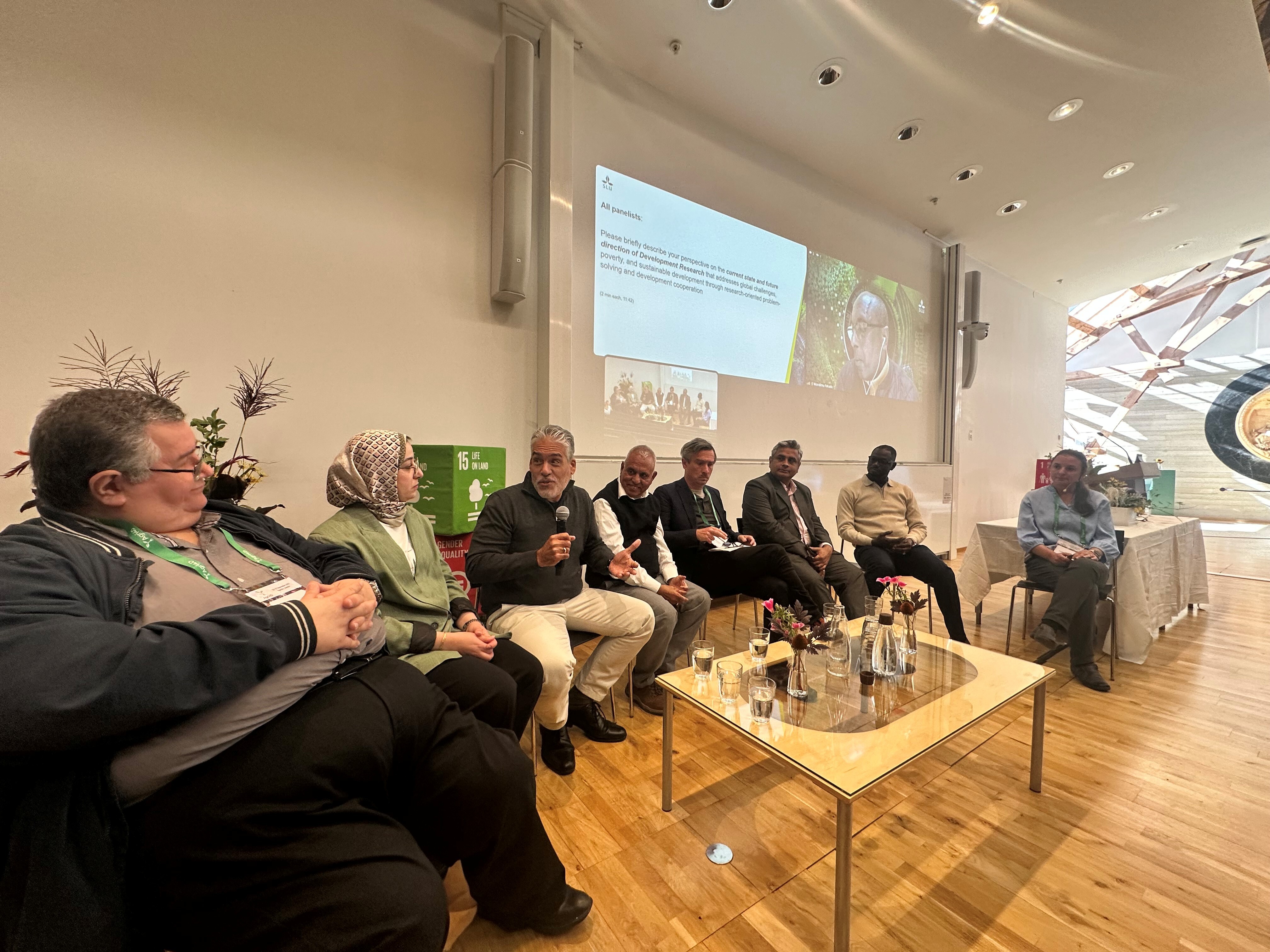
The Early Field Challenges
The journey began in 2014 with cautious optimism. The team’s first field visit in Mauritania showed promise as the initial durum wheat plants produced seed; however, it also highlighted serious constraints. The research station had no prior experience with wheat, limited equipment, and staff trained primarily in rice cultivation. The project’s first major step was to build capacity by providing the station with the necessary tools and by training local researchers and technicians to run wheat trials effectively.
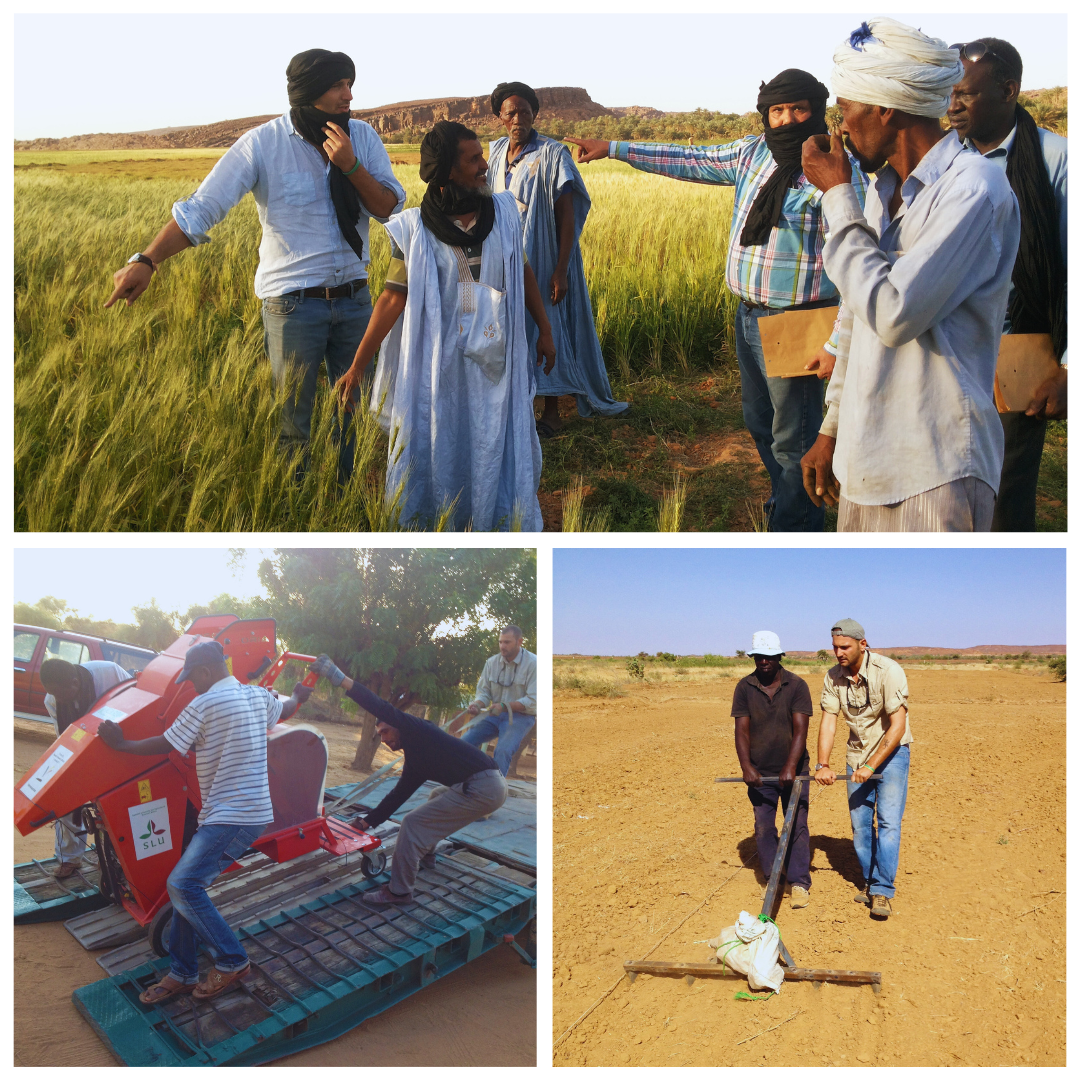
Within a single season, the quality of field trials improved significantly, enabling scientists to identify promising varieties. The trials quickly reached international gold standards, providing a unique opportunity to study how crops adapt to extreme heat stress. Along the Senegal River, where the daily temperature exceeds 35°C throughout the growing cycle, the conditions proved ideal for screening wheat under climate change scenarios, which allowed researchers to uncover the genetic and physiological mechanisms of heat tolerance, accelerating the development of resilient varieties.
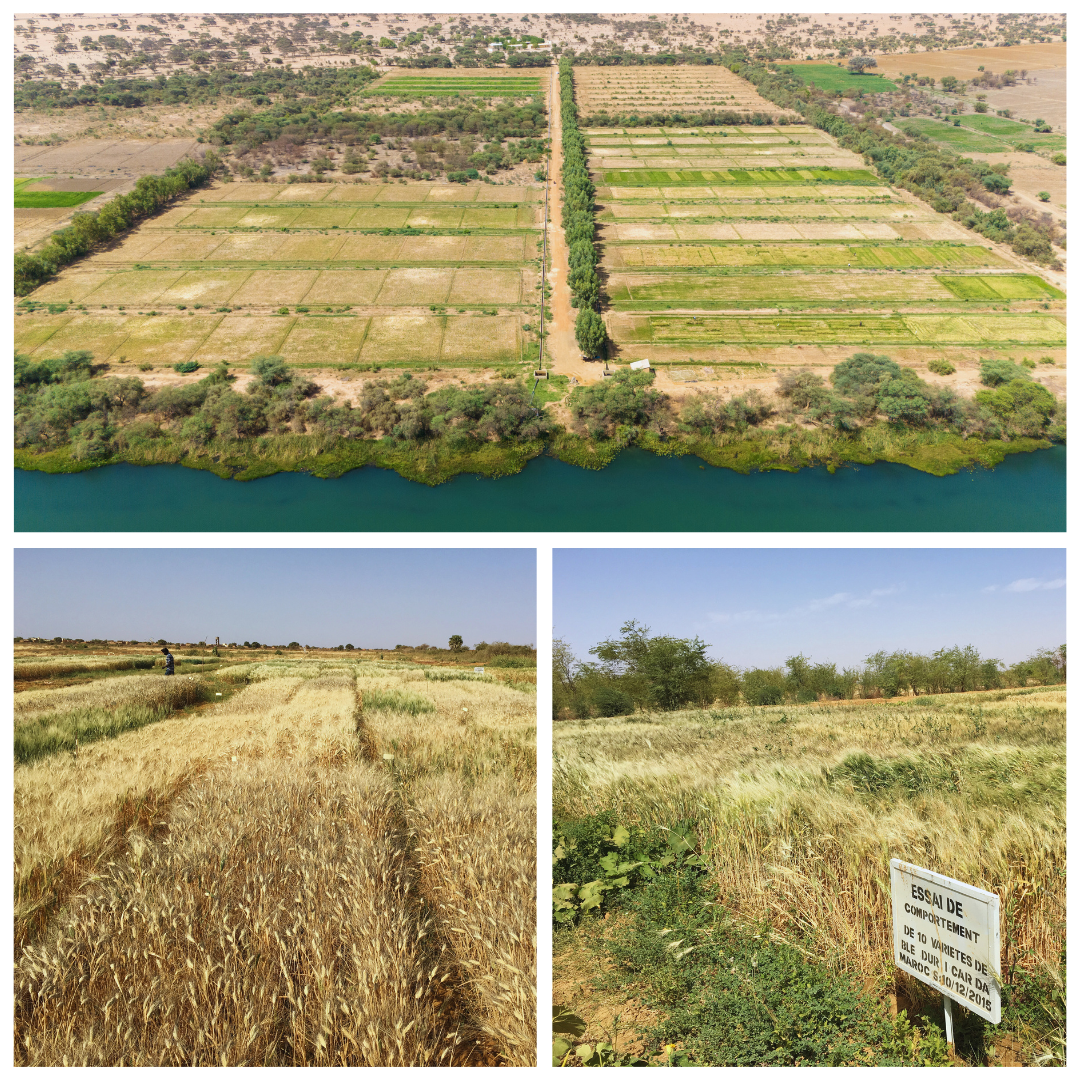
Building Scientific Legacy
To deepen scientific understanding, the project supported three PhD candidates at SLU, who went on to become leading researchers in the field. Their work applied advanced genomic approaches to identify both the mechanism of tolerance and the genomic regions responsible for the heat tolerance response. The collaboration has since generated 10 peer-reviewed publications, one of which has been cited over 400 times, leaving a long-lasting impact in durum wheat research. Also, upon request, the heat-tolerant germplasm identified was distributed to over 50 institutions globally. These public resources have enabled crop breeding companies and research programs alike to advance climate-resilient wheat varieties.
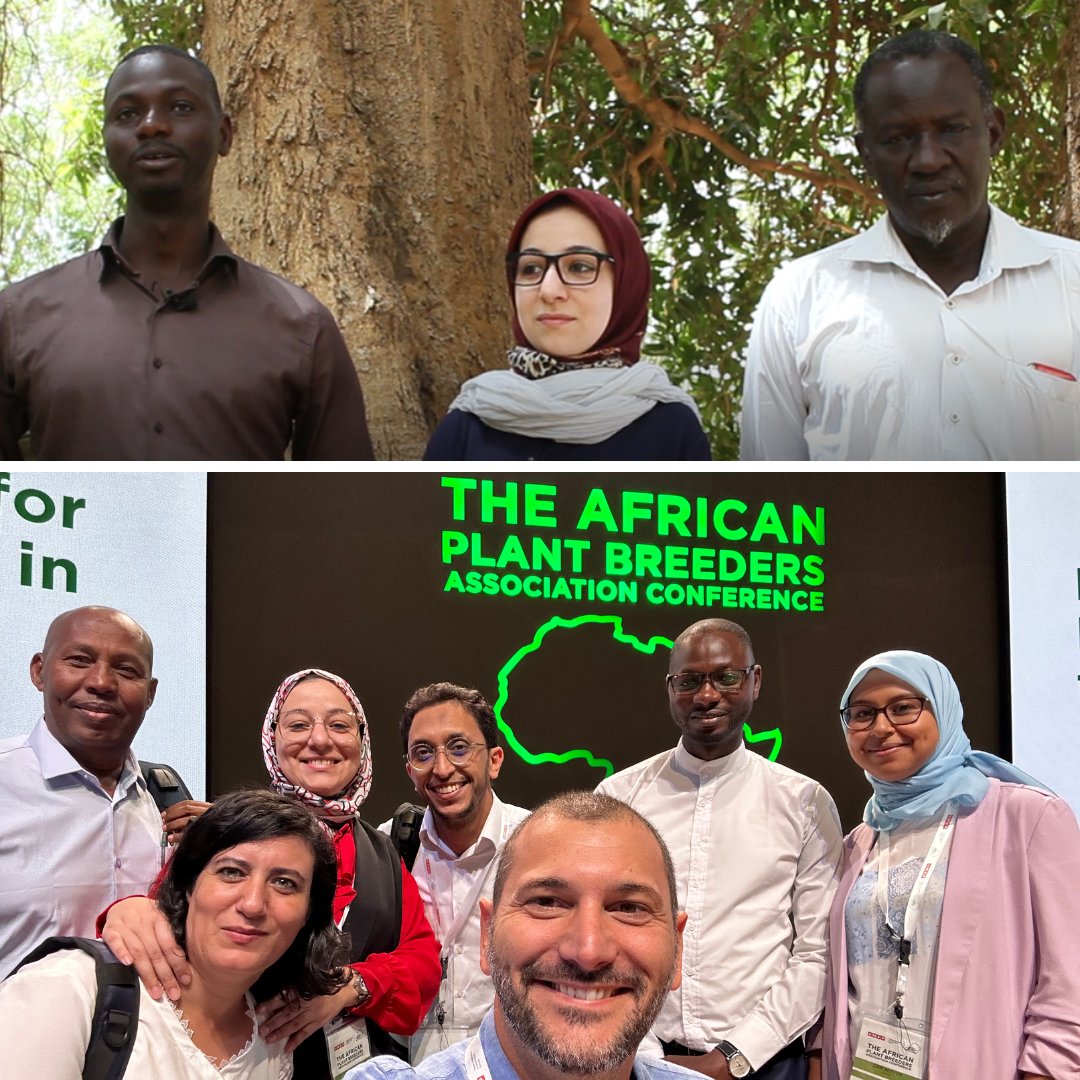
“I believe that good, solid, and futuristic science was the true driver that assured our impact,” said Prof. Rodomiro Ortiz, professor of Genetics at SLU and the lead of the project. “The team never ceased to seek the next innovation, and that is how we arrived in farmers' fields.”
Unexpected Opportunity and Farmer Adoption
Durum wheat was tested at two research farms along the Senegal River Basin during the harmattan season, from November to February. At this time of year, rice cultivation had ended, and farm workers were available to support wheat trials. The original project objectives did not include the promotion of wheat cultivation in the region, but rather to use the unique climatic conditions of the River to study heat tolerance.
However, the 2014–15 season delivered an unexpected outcome where a few durum lines yielded more than 3 tons per hectare. Further, both Mauritania and Senegal import yearly over USD 100 millions of durum grains and semolina products, with high domestic demand for pasta and couscous. Finally, during the harmattan, the River has abundant water flow remaining from the rainy season that can be used for irrigation, yet fields remain fallow because cool night temperatures prevent effective rice cultivation. The convergence of good yields, high demand, suitable land and available water resources prompted the team to seek durum wheat adoption beyond the fences of the research farms.
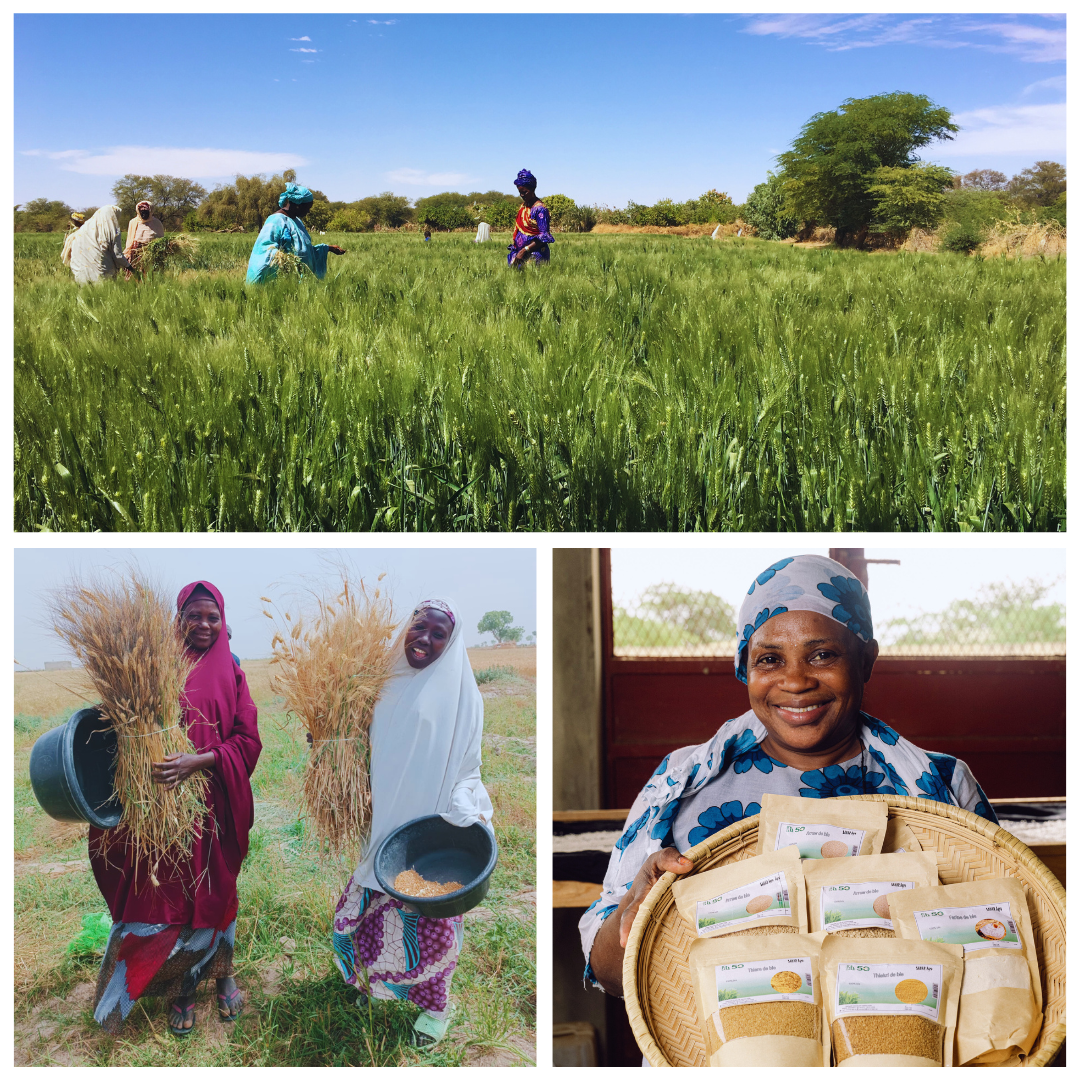
Scaling Impact
In 2016, the first two varieties were released for cultivation in Mauritania, followed by three more in Senegal. What began as a scientific breakthrough quickly caught the attention of policymakers. By 2018, a dedicated wheat stakeholders’ meeting in Dakar brought everyone to the table.
“It might sound surprising, but with strong partnerships, good science and dedication, we have now made wheat cultivation in Senegal possible,” said ICARDA’s Director General, Aly Abousabaa. “The path to deliver it to farmers is still long, but we appreciate the political support, and we believe it can just as easily become a reality.”
That same year, the wheat story in Senegal took root, quite literally, in the village of Ndiayène Pendao, where a group of pioneering women farmers attempted, for the first time, to plant the crop. The results were nothing short of remarkable, sparking public confidence and paving the way for a transformation along the Senegal River. Today, over 50,000 hectares are estimated to be under wheat cultivation, which is an extraordinary leap from a handful of hectares at two research farms less than a decade prior.
The ripple effect has been so powerful that, inspired by Senegal’s success, OLAM Agri launched a sister project in Nigeria, releasing the first durum wheat variety, LCRI Crown, in 2023. Once again, women farmers led the way, adopting the crop across 100 hectares in just two years.

Project References
U-forsk 2013 - Deployment of Molecular Durum Breeding to the Senegal Basin: Capacity Building to Face Global Warming https://icarda.org/media/news/heat-tolerant-wheat-can-help-farmers-adapt-climate-change
U-forsk 2017 - Genomic prediction to deliver heat tolerant wheat to the Senegal River basin: phase II https://mel.cgiar.org/projects/715
U-forsk 2021 - Delivering heat tolerant alleles to raise farm income along the Senegal River: phase III. https://mel.cgiar.org/projects/delivering-heat-tolerant-alleles-to-raise-farm-income-along-the-senegal-river-phase-iii
Breeding schemes for the implementation of genomic selection in wheat (Triticum spp.) FM Bassi, AR Bentley, G Charmet, R Ortiz, J Crossa - Plant Science, 2016
Genetic diversity within a global panel of durum wheat (Triticum durum) landraces and modern germplasm reveals the history of alleles exchange H Kabbaj, AT Sall, A Al-Abdallat, M Geleta, A Amri… - Frontiers in plant science, 2017
Durum wheat (Triticum durum Desf.): Origin, cultivation and potential expansion in Sub-Saharan Africa A Tidiane Sall, T Chiari, W Legesse, K Seid-Ahmed… - Agronomy, 2019
Loci controlling adaptation to heat stress occurring at the reproductive stage in durum wheat K El Hassouni, B Belkadi, A Filali-Maltouf… - Agronomy, 2019
Heat tolerance of durum wheat (Tritcum durum Desf.) elite germplasm tested along the Senegal River AT Sall, M Cisse, H Gueye, H Kabbaj, I Ndoye… - Journal of agricultural science, 2018
Combining QTL analysis and genomic predictions for four durum wheat populations under drought conditions M Zaïm, H Kabbaj, Z Kehel, G Gorjanc, A Filali-Maltouf… - Frontiers in Genetics, 2020
What plant breeding may (and may not) look like in 2050? FM Bassi, M Sanchez‐Garcia, R Ortiz - The Plant Genome, 2024

